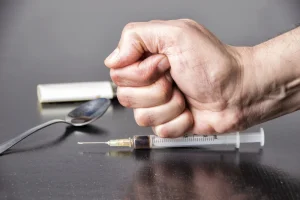The Power of Telling Your Story in Recovery

But before you lay out all the details to people, prepare them for the conversation. Stay calm and educate them about the truth and realities of addiction — it will help them get through the initial rush of emotion. Easing into the conversation helps others understand and have compassion for those with substance use disorders. Furthermore, sharing your experience with Never Alone Recovery’s incredible community often triggers an outpouring of support from peers who truly understand where you’ve been.
- Low moments in the throes of addiction aren’t moral failings, but you do have to accept responsibility for your actions.
- One of the top benefits of going to AA meetings is being able to talk about your recovery journey, and about any roadblocks you might be facing along the way.
- Everyone’s needs differ – some may prefer big groups, others may prefer closer ties.
- It creates emotional connections and has the power to change attitudes, behaviors, and actions related to addiction.
- Sharing individual recovery stories can help people connect with others who have gone through similar situations for support and encouragement.
The Way Back from Mental Illness: 6 Reasons Why You Should Tell Your Story of Hope and Recovery
Sharing your story is essential for various reasons; one of the biggest is inspiring and encouraging someone as they first enter recovery. The benefits and significance of sharing your story are extraordinary, and they are worth more than you think. One way to determine whether you’re ready to share your recovery story is to first speak with your mental health therapist or counselor. Explain why you want to share your journey and how you think it could make you feel. They’ll help you identify whether it might be the right time and some things to consider before sharing details of your addiction.

Don’t: Share If You’re Not Ready

They break down stigmas surrounding addiction while promoting compassion and support for individuals in recovery. It breaks the feeling of being alone and reinforces commitment to sobriety. It also creates connections in recovery communities and has a powerful impact on readers. Plus, it breaks the stigma of addiction and mental health issues. Sharing your story is incredibly important — which is precisely why this concept is a crucial part of recovery programs like Alcoholics Anonymous.
These Do’s and Don’ts Can Help You Share Your Recovery Story
These stories serve as a reminder that recovery is possible and that there is support available. Sharing stories breaks addiction’s stigma and makes individuals agents of change. They provide inspiration and support to those with addiction or mental health issues. By speaking about their journey, they show progress and raise hope in others. Online platforms provide opportunities for hope, education, connection, and support.

Finding balance between blaming and healing after personal trauma.

Sharing your recovery story provides a roller coaster ride of honesty and inspiration. By recounting past struggles, challenges, and triumphs, individuals are reminded of what they have overcome and how much they have grown. This supports their commitment to sobriety, and encourages them to keep healing. Daunting though it may be, it’s also important—and not least for those who are in recovery. In fact, if you’re in recovery yourself, sharing your story with others is one of the most important things you can do—stigma be damned. While traumatic events may influence our thoughts and behaviors, they do not have to dictate our outlook on life.
- Be sure to check out Never Alone Recovery on Medium to read those featured stories.
- By sharing your recovery story, you actively break down these barriers, making treatment more accessible to those who need it.
- Anyone who has ever spent time in “the rooms” of Alcoholics Anonymous will attest to the beauty and power of seeing someone share their recovery story.
Sharing And Stigma

This can be empowering for both the storyteller and the listener. It allows storytellers to affirm and value their journey of recovery, and strengthens their commitment to staying sober. One thing that people often ignore is the therapeutic advantages of sharing recovery stories. By breaking the stigma of addiction and mental health, storytellers can offer other people courage, encouragement, and assistance. It helps them on their own path to recovery as well as reassures and appreciates their own journey.
DON’T Forget to Mention the Importance of 12-Step Programs
We’re passionate advocates for addiction recovery and would love to help you share your story. Even if you’re sharing your story primarily to help with your own healing, you’ll still need to consider the feelings of your audience. For example, if you’re sharing your journey with others who are in active recovery, it’s important to maintain a positive outlook that emphasizes growth – not just the hard challenges. Listening to others in recovery plays a big part in this process.
Sharing your story with others makes you feel like one of the group. Some people begin sharing their stories in rehab, 12-Step programs, or support groups. Others may share it with family or friends, or speak at a community or church function. As you tell your story, you realize that people support you and you are not alone. The feelings of loneliness so common during active addiction slowly disappear. Millions of people in the United States struggle with sharing your story in recovery an addiction to drugs or alcohol.
Why is sharing personal recovery stories more effective in engaging readers than articles with statistics and facts?
It should not be used in place of the advice of your physician or other qualified healthcare providers. Sharing your recovery story isn’t easy, but it’s a necessary part of the healing process. At Roots Recovery, we’ll walk you through how to handle these tough conversations and help you find the best way to move forward in your unique situation. Never Alone Recovery is a free resource that helps support individuals facing addiction and their loved ones.
thoughts on “The Way Back from Mental Illness: 6 Reasons Why You Should Tell Your Story of Hope and Recovery”
By understanding the role our mind, thoughts, attitudes, and beliefs play in how our nervous system responds, we can take proactive steps toward emotional stability. However, these changes are not meant to be permanent or last indefinitely. They’re protective responses, similar to developing mucus during a flu attack, and don’t necessarily make someone a victim in the long run. If you’re interested in starting your recovery journey or learning more about how to talk about your struggles, reach out to one of the team members at Alabama Recovery Center today. Another benefit to sharing your story is that it can form lasting relationships, ones that can be reserves of encouragement, solidarity, and accountability.